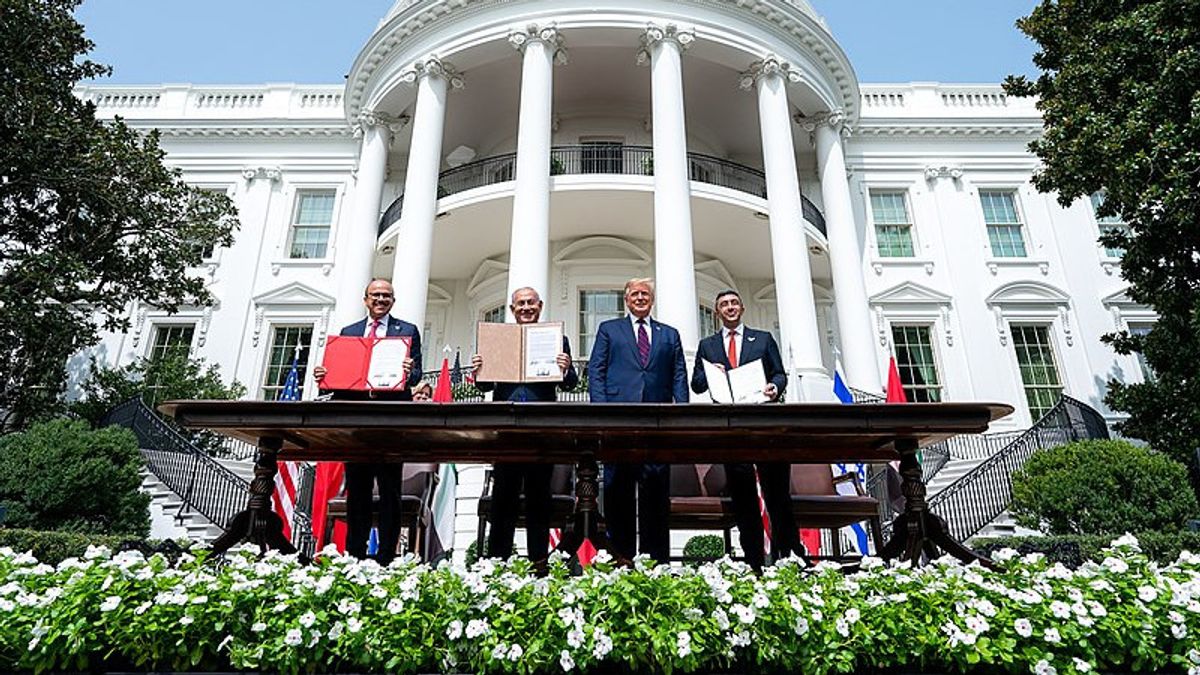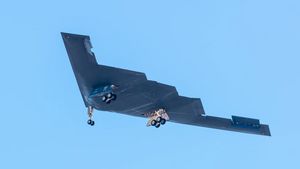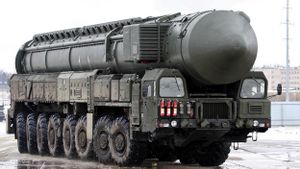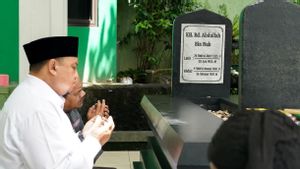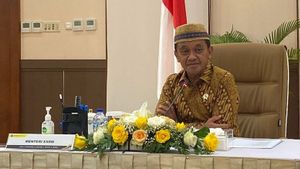JAKARTA - The United Arab Emirates (UAE) and Bahrain have signed an agreement to normalize relations with Israel. The two countries became the first Arab countries in a quarter century to break this taboo. The UAE and Bahrain share the same reasons for normalizing relations with Israel. Both of them both want to fight Iran.
The President of the United States (US) Donald Trump is hosting a signing ceremony at the White House. In front of a crowd of several hundred people on the lawn of the White House, Prime Minister (PM) Benjamin Netanyahu signed agreements with UAE Foreign Minister Sheikh Abdullah bin Zayed al-Nahyan and Bahraini Foreign Minister Abdullatif Al Zayani.
Trump believes the next Gulf Arab country that will soon normalize relations with Israel is Saudi Arabia. He believes Saudi Arabia reached an agreement with Israel "at the right time." The Saudi Arabian cabinet stressed the need for "a fair and comprehensive solution" to the Palestinian problem.
Saudi Arabia is the largest Gulf Arab power. Its king is the custodian of Islam's holiest site and rules the world's largest oil exporter. Despite his reluctance, the kingdom's tacit approval of a treaty was possible.
Great historyThe signing ceremony provided Trump with a valuable picture as he tries to hold on to power in the November 3 presidential election. The flags of the US, Israel, UAE and Bahrain were seen fluttering as if to show strength and pride.
"We are here, this afternoon, to change the course of history," Trump said from the balcony of the White House.
Trump called the deal a major step in which people of all faiths and backgrounds live together in peace and prosperity. He also added that the three Middle Eastern countries "will work together because they are friends."
Uniting Israel, the UAE and Bahrain reflects their shared concern about Iran's growing influence in the Middle East region and its ballistic missile development. The three Middle Eastern leaders praised the agreement and Trump's brilliant role, Netanyahu saying it gave hope to "all the Abrahamic people."
UAE and Bahraini officials are still both trying to convince Palestinians that their country has never left Palestine or their pursuit of statehood in the West Bank and Gaza Strip. However the Palestinian leadership has denounced the deal as a betrayal of their cause.
As a sign that regional strife will surely continue while the Israeli-Palestinian conflict remains unresolved, Palestinian militants fired rockets from Gaza at Israel during the ceremony, the Israeli military said. Israel's Magen David Adom ambulance service said paramedics were treating two men for minor injuries from broken glass in Ashdod. While the other four were in shock.
"This is not peace, this is submission in exchange for continued aggression," the Palestine Liberation Organization Twitter account posted. "There will be no peace until Palestine becomes independent."
The Palestinian leadership has long accused Trump of being pro-Israel and has criticized the Arab rapprochement with Israel. In addition, despite the failed Israeli-Palestinian negotiations in 2014, several Gulf Arab states and several other Arab states have long had quiet informal contacts with Israel.
Another target of the US plan besides Saudi Arabia is Oman, whose leader spoke with Trump last week. Oman even sent its ambassador to the signing ceremony, said a senior US official. However, no representatives from Saudi Arabia were present.
The English, Chinese, Japanese, Arabic, and French versions are automatically generated by the AI. So there may still be inaccuracies in translating, please always see Indonesian as our main language. (system supported by DigitalSiber.id)
